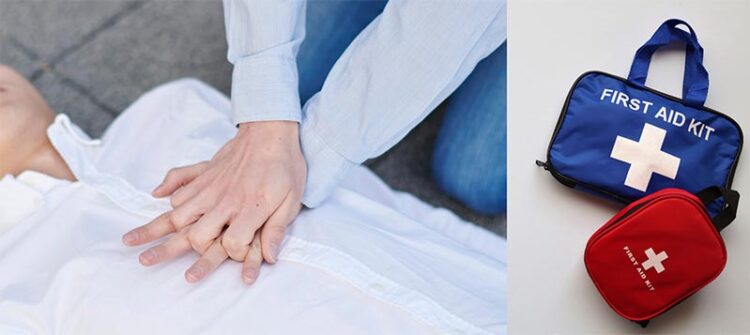In today’s fast-paced world, being able to respond quickly and effectively in emergencies can make all the difference. For healthcare workers, emergency responders, and even those in high-risk environments, BLS certification (Basic Life Support) is an essential qualification. This certification teaches life-saving techniques that can significantly improve patient outcomes in critical moments. Let’s explore why BLS certification is so important and how it benefits your career.
What is BLS Certification and Why is it Essential?
BLS certification is a standardized training program that teaches vital skills to assist in life-threatening emergencies. These techniques include Cardiopulmonary Resuscitation (CPR), using an Automated External Defibrillator (AED), and managing choking victims. In many critical situations, BLS-trained professionals are the first to intervene, stabilizing the person until more advanced care arrives.
For healthcare providers and emergency responders, BLS certification is vital because it provides the knowledge and confidence to respond effectively in high-pressure situations.
Who Needs BLS Certification?
While BLS is crucial for healthcare professionals, it’s also beneficial for anyone working in public safety or with vulnerable individuals. Here’s who should get certified:
- Doctors, Nurses, and Medical Professionals: As first responders to medical emergencies, they are often the first line of defense and need BLS skills to manage critical situations.
- EMTs, Paramedics, and First Responders: These professionals require BLS training to respond quickly to emergencies and maintain life until advanced medical care is available.
- Teachers, Coaches, and Childcare Providers: Anyone responsible for children’s safety should be certified, as children are more prone to choking and other accidents that require immediate attention.
Why BLS Certification Improves Emergency Response
In emergencies like heart attacks, strokes, or sudden cardiac arrest, survival heavily depends on immediate intervention. Without it, the chances of recovery decrease rapidly. This is where BLS certification comes in—equipping you with the skills to provide timely assistance.
Immediate Action Can Save Lives
Performing CPR and using an AED during a cardiac arrest can double or even triple someone’s chances of survival. BLS certification ensures you’re prepared to intervene swiftly, which can make all the difference in critical situations.
Confidence in High-Stress Situations
Emergencies can be stressful, but BLS training gives you the knowledge to remain calm and take decisive action. Being certified also improves your ability to make quick decisions without hesitation, which is essential when dealing with life-threatening conditions.
Career Benefits of BLS Certification
While the primary reason for BLS certification is to handle emergencies effectively, it also offers significant career benefits. Here’s how:
- Enhanced Job Opportunities
Many employers in healthcare and emergency services require BLS certification. By completing this course, you can boost your employability in fields where quick and effective emergency response is essential. - Increased Professional Credibility
Healthcare employers look for staff who are trained to handle emergencies. Having a BLS certification enhances your credibility as a reliable professional who can provide the best care during critical situations. - Workplace Safety and Confidence
For organizations that prioritize safety, having staff certified in BLS means that the workplace is better equipped to handle emergencies. This can increase overall team confidence and contribute to a safer working environment.
How to Get Certified in BLS
Becoming certified in BLS is straightforward. Leading organizations like the American Heart Association (AHA) and Red Cross offer BLS courses. These courses are available in-person and online, providing flexibility for busy professionals.
What to Expect in BLS Training
A BLS course typically lasts between 2 and 4 hours. It includes both theoretical lessons and practical hands-on training, covering CPR, AED use, and how to manage choking emergencies. Upon successful completion, you’ll receive a certification, which is typically valid for two years.
Final Thoughts – Make BLS Certification a Priority
Whether you work in healthcare, education, or emergency services, BLS certification is crucial for ensuring you can effectively respond to life-threatening situations. It’s not just a credential; it’s a responsibility that can make a difference in saving lives.
By becoming BLS certified, you gain the confidence and skills necessary to handle emergencies with calm and efficiency. If you’re looking to advance your career or simply want to ensure that you’re prepared in the case of an emergency, don’t hesitate—sign up for a BLS certification course today.






























